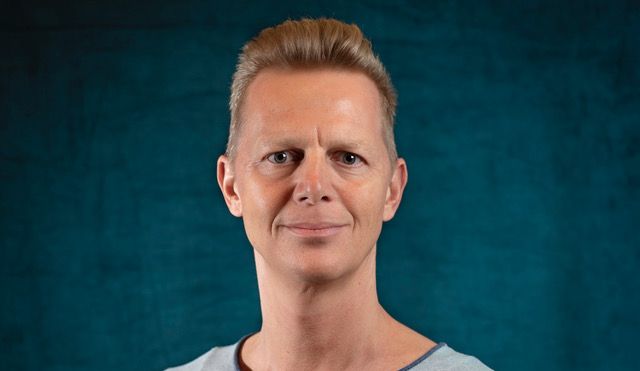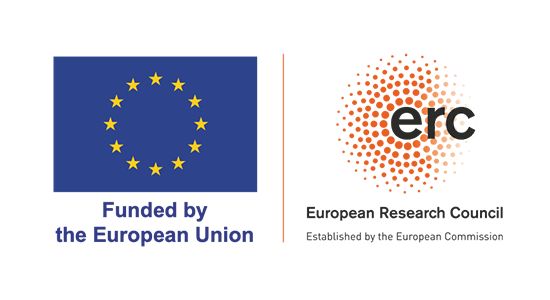Policyaid
Policy, practice and patient experience in the age of intensified data sourcing (POLICYAID) was a research project funded by the European Research Council initiated June 1st, 2016 and completed on September 30th, 2021

POLICYAID was nested within the Centre for Medical Science and Technology Studies (MeST) and the results and publications can be found in the ERC databases as well as under dissemination below.
The European healthcare services have begun collecting tissue samples and healthcare data from patients on an unprecedented scale. In POLICYAID we employed the term 'intensified data sourcing' to these attempts to get more data, of better quality, on more people, while simultaneously making the data available for multiple uses. We explored how data are increasingly used not just for clinical purposes, but also for research, financial remuneration, quality assurance, policy development, and even for attracting capital and stimulating economic growth. POLICYAID explored the interaction between the diverse agendas.
Our aim in POLICYAID was to understand the drivers for and implications of intensified data sourcing in the biomedical realm across three levels: policymaking, everyday clinical practices, and citizen experiences of health, illness, rights and duties. To achieve this aim we compared four different forms of intensified data sourcing, and analysed the regulatory frameworks guiding the data procurement and use in Denmark, the EU and beyond.
We fused anthropological, sociological, legal, and public health scholarship and develop new methodologies for policy analysis by combining document analysis, interviews, participant observation and register-based methodologies. Instead of assuming what data sourcing is about (e.g., surveillance, control or research benefits), we opened up the black box of data sourcing by describing how data are selected; financed; what they are used for; how data practices relate to the involved people's hopes and concerns; and who gains which rights to the data. In this way we explored how intensified data sourcing affects clinical routines and patient experience.
POLICYAID was hosted by the Centre for Medical Science and Technology Studies (MeST), Department of Public Health, University of Copenhagen. Department of Public Health is a strong interdisciplinary research environment using data intensive methodologies, and MeST is a social science research centre nested within the department aimed at delivering critical perspectives on medical and population health research and practice.
The project benefitted from collaboration with a national and an international reference group.
Edited, April 2020
Professor Susi Geiger from the University College Dublin gave a public talk with the title: How digital technologies came to save healthcare (and why they may actually do so despite themselves), November 20, 2019.
Sarah Cunningham-Burley from Edinburgh gave a public talk with the title: Participation and partnership? Experiences of engagement in precision oncology, September 27, 2019.
Anders Albrechtslund, Mikkel Flyverbom, and Dorthe Brogård Kristensen participated in a public panel debate (moderated by Klaus Høyer) about Zuboff’s book about surveillance capitalism, June 17.
Susan Erikson from Simon Fraser University gave a public talk with the title: Global Health Futures? Reckoning with an Outbreak Bond, June 3, 2019
Kathleen Pine, Arizona State University gave a public talk with the title: Organizing for Data: Crafting Data Elements in the ‘Data-Driven’ Hospital. The seminar took place on Thursday April 4, 2019.
Linnet Taylor from Tilburg University gave a public talk with the title: Public health, private knowledge: researching technology and data as a way to understand the global political economy of health. The seminar took place Wednesday October 3, 2018.
Tamar Sharon of Maastricht University gave a public talk with the title: When digital health meets digital capitalism, how many common goods are at stake? The seminar took place on Thursday June 14, 2018.
Researcher and consultant at Data and Society, Jacob Metcalf, gave a public talk with the title: Understanding the mismatch between ethics regulations and the epistemologies of machine learning. The seminar took place on Friday May 18, 2018.
Sally Wyatt from the Maastricht University gave a public talk with the title: Where is the knowledge we have lost in data? The seminar took place on Tuesday May 15, 2018
Linda Hogle from University of Wisconsin-Madison gave a public talk with the title “Healthcare has become a hungry tapeworm" and other justifications for disrupting data infrastructures”. The seminar took place on Thursday March 8, 2018
Annamaria Carusi, University of Sheffield, gave a public talk with the titel: Organismic reshuffling: chemicals, organism and computers. The talk took place on Monday November 6, 2017.
Ilpo Helén, University of Eastern Finland and Karoliina Snell, University of Helsinki gave a public talk with the titel: Making Up Genome Finland. Politics Of Health Data Sourcing. The talk was commented by Thomas Lemke, Goethe University, Frankfurt. The seminar took place on Wednesday August 24, 2017.
Lynn Morgan from Mount Holyoak College gave a public talk with the titel: Miss Mexico’s Dress and the Backlash against Reproductive Rights in Jalisco, Mexico. The seminar took place on Tuesday May 30, 2017.
Jane Kaye from University of Oxford gave a public talk about innovative informed consent concepts at the Local Concerns symposium organised in collaboration with the Global Genes project. The symposium took place on Thursday, March 16, 2017.
Seminar with Claes-Fredrik Helgesson from Linköping University, who gave a public talk about valuations. The seminar took place on Monday, January 23, 2017.
A seminar with Teun Zuiderent-Jerak & Sonja Jerak-Zuiderent with the title “Trans Health Guides as Doing Human Rights: Activism, Evidence, and Standardizing from the Zero Point” was held on October 10th, 2016.
A seminar with Professor Jenny Reardon with the title “The Postgenomic Condition: Ethics, Justice, Knowledge After the Genome” was held on August 11th, 2016.
Section for Health Services Research
Department of Public Health
University of Copenhagen
Øster Farimagsgade 5
PO Box 2099
DK-1014 Copenhagen K
Denmark
Principal Investigator Klaus Lindgaard Hoeyer
Tel: +45 35 32 79 96
E-mail: klho@sund.ku.dk
Project coordinator Janne Sørensen
Tel: +45 35 32 72 88
E-mail: jans@sund.ku.dk
Press inquiries and expert quotes
If you would like an expert opinion you are welcome to contact Klaus Lindgaard Hoeyer.
Principal Investigator
Professor Klaus Lindgaard Hoeyer
Telephone: (+45) 35 32 79 96
E-mail: klho@sund.ku.dk


